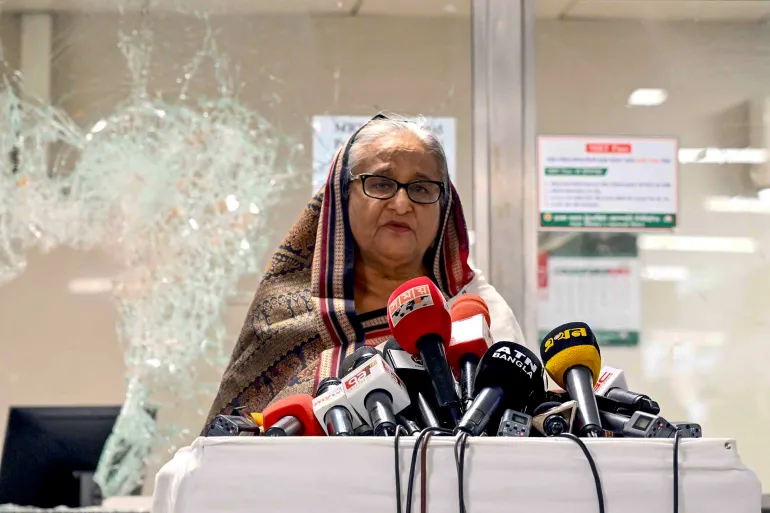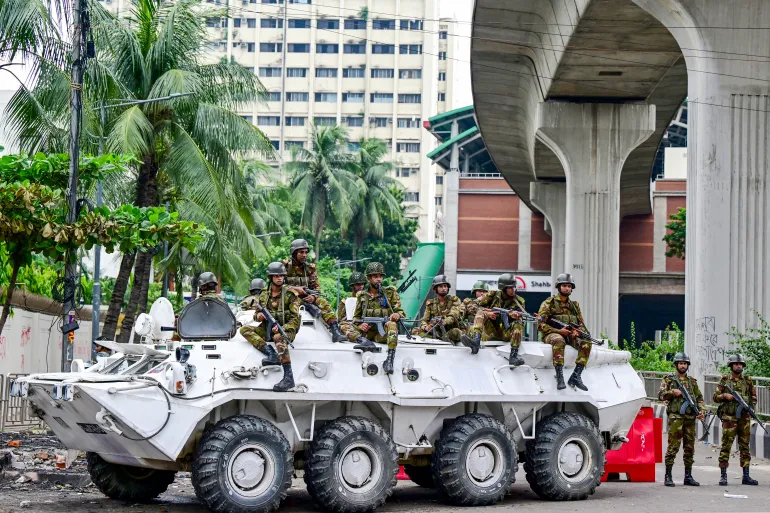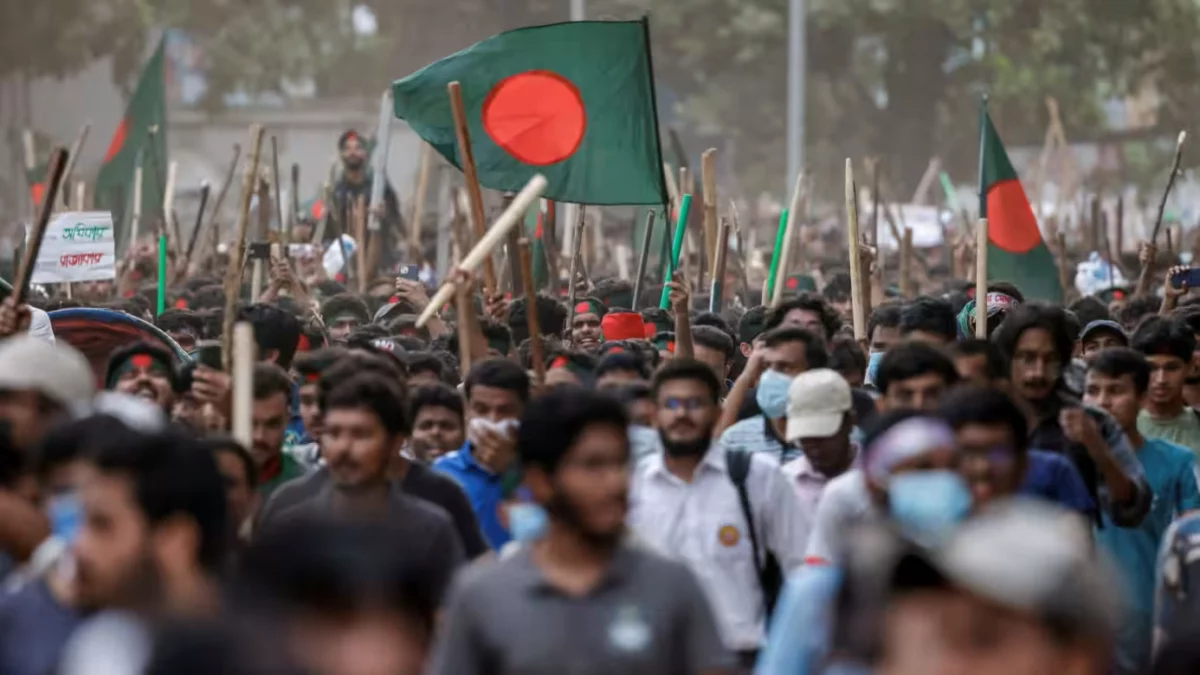The protests that began last month over governmental job quotas have escalated into nationwide unrest, culminating in the resignation and departure of long-term Prime Minister Sheikh Hasina. The unrest, which has so far resulted in nearly 300 deaths, saw thousands of people taking to the streets, demanding Hasina’s resignation.
Protest coordinator Asif Mahmud announced the continuation of the uprising on social media, calling for a massive “March to Dhaka” to join what he described as the “ultimate fight.” This call to action saw an overwhelming response, with thousands converging on the capital.
The situation in Dhaka intensified following the announcement of a nationwide curfew on Sunday evening. The city, heavily patrolled by army tanks and police vehicles, saw almost no civilian traffic on Monday. Despite the increased security, thousands of protesters stormed Sheikh Hasina’s official residence, with reports suggesting the prime minister had fled the city.

According to Prothom Alo, a leading Bangladesh daily, Hasina has possibly left the country. Unconfirmed reports indicate that she departed in an army helicopter. A personal aide to Hasina confirmed to Al Jazeera that the prime minister has fled the country.
Chief of Army Staff General Waker-Uz-Zaman is currently in talks with major political parties, including the opposition Bangladesh Nationalist Party (BNP), to discuss the formation of an interim government. He is expected to address the nation later today.

Celebrations erupted in Dhaka as news of Hasina’s resignation spread. Shahbag Square, the epicenter of the student protests, became a scene of jubilation with students and families taking to the streets. Political analyst Mubashar Hasan described the scenes as a “moment of celebration, a moment of victory,” likening it to a second independence for Bangladesh.
Protesters now in Bangladesh prime minister palace pic.twitter.com/f5jVvF88xX
— Cyprian, Is Nyakundi Kibiru (@C_NyaKundiH) August 5, 2024
Nazma Akter, president of the Sommilito Garment Workers Federation, expressed her disapproval of Hasina’s departure, accusing her of causing extensive harm to the country and its people. “She doesn’t love the country, she took advantage and she misused her power, and that is very unfortunate,” Akter told Al Jazeera.
Before protesters stormed the official residence, Hasina’s son, Sajeeb Wazed Joy, urged the country’s security forces to prevent any takeover of her 15-year rule. “Your duty is to keep our people safe and our country safe and to uphold the constitution,” he said in a Facebook post.
The recent unrest highlights the deep-seated issues within Bangladesh’s political and judicial systems, with allegations of extrajudicial killings and politicization of state institutions. Mubashar Hasan noted the profound sense of relief and happiness among the people, who have long sought justice and fairness.
















